
Preparing kids for school when returning to Switzerland
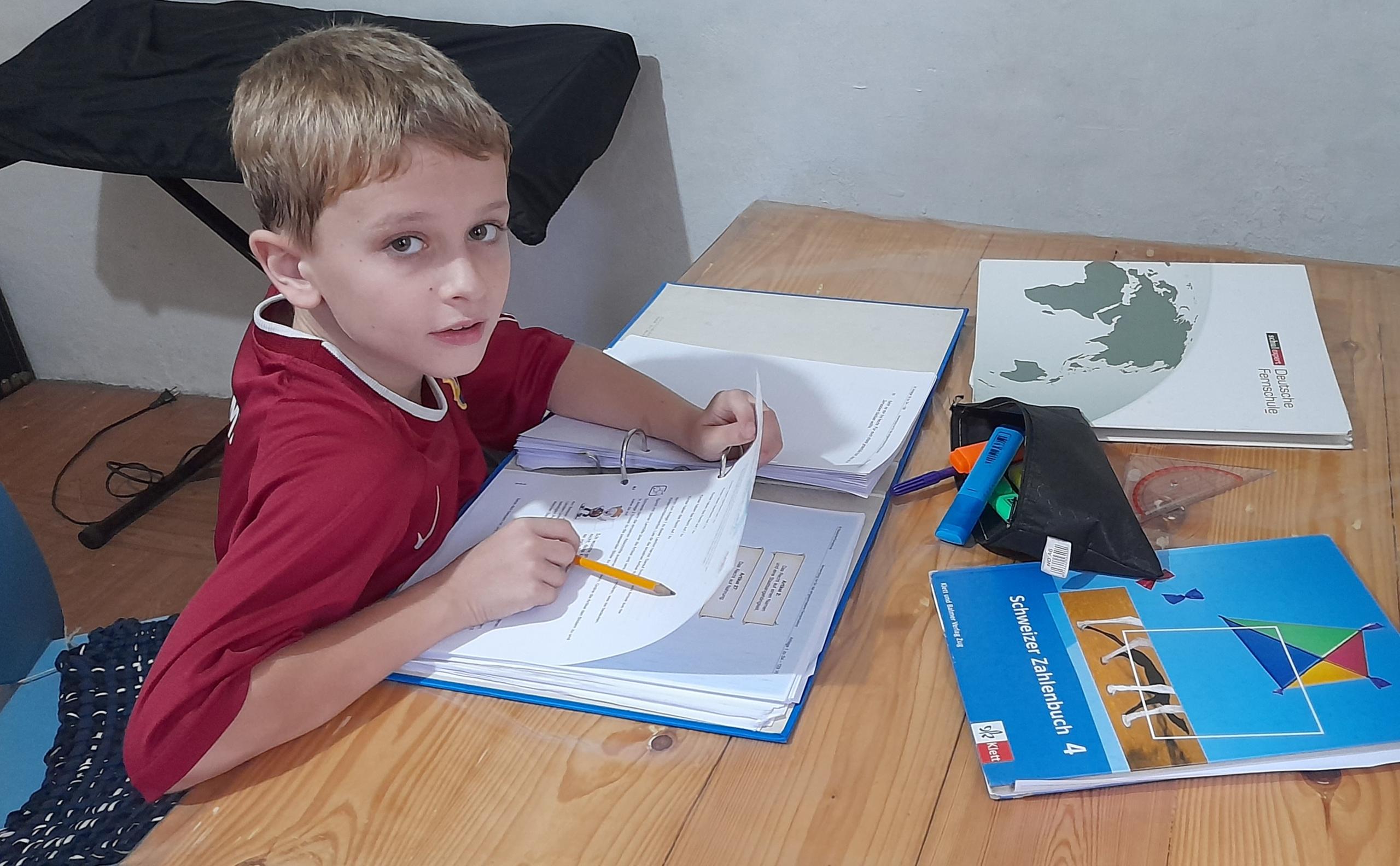
After five years working for a charity in the Philippines, Barbara and Simon Stankowski are preparing to return home to Switzerland. We explore the steps expatriates need to take to ensure a smooth entry into the Swiss school system for their children.
“We don’t want to uproot our children during their teenage years,” say Barbara and Simon Stankowski, both 42. Since 2018, the couple and their two sons, Noel, 10, and Micha, 7, have been living in a poor neighbourhood of the Philippine capital Manila. The couple work for the NGO Servants to Asia’s Urban Poor, an international network of Christians who live and work in Asian slum districts.
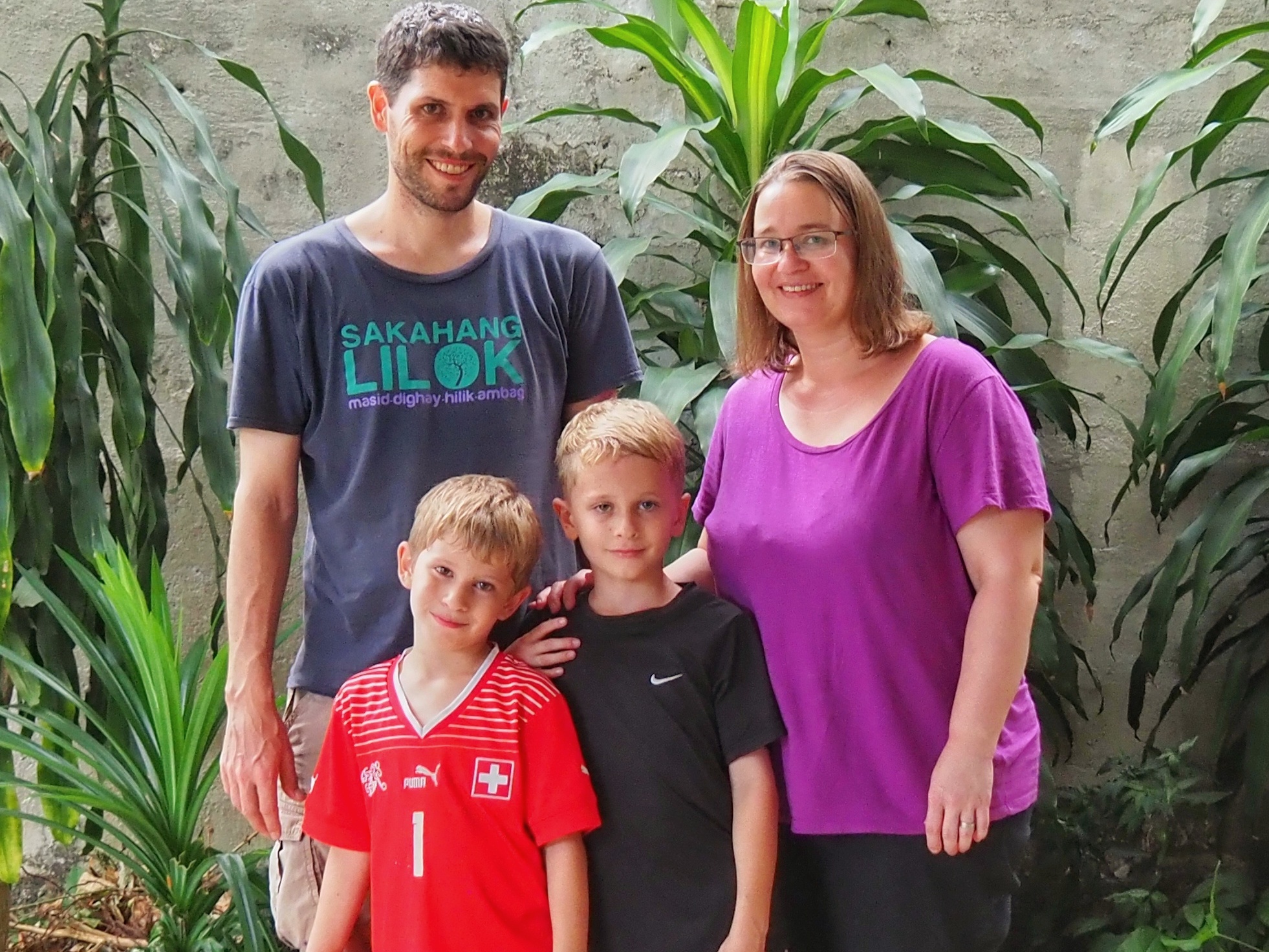
When the Stankowskis embarked on their expat adventure, the question of how their children’s identity would develop during adolescence was very much on their minds. They knew from the start that they would not stay in the Philippines until their children reached their teens.
That decision was reinforced by the Covid-19 pandemic. “Initially, uprooting our children was our main concern. But five years of daily life in the Philippine school system, including three years in a health crisis, convinced us to return,” Barbara says.
Young children integrate better
Ruth von Gunten, an expert at educationsuisse, an organisation that offers advice to Swiss abroad, says: “The younger the children are when they return to Switzerland, the better their chances of integrating.” She says teenagers are often more attached than young children to their friends and leisure activities, so it is harder to take them out of their daily routines.
In addition, once children have passed the age of compulsory schooling, which is 16 in Switzerland, the question of higher or vocational education arises. At this point, children are required to choose their educational course or undertake a transitional year.
For the Stankowski family, being able to offer their children access to the wide range of Swiss educational options is also a factor. “I would like my sons to be able to do an apprenticeship if they want to,” Barbara says. In the Philippines, however, higher education is only academic.
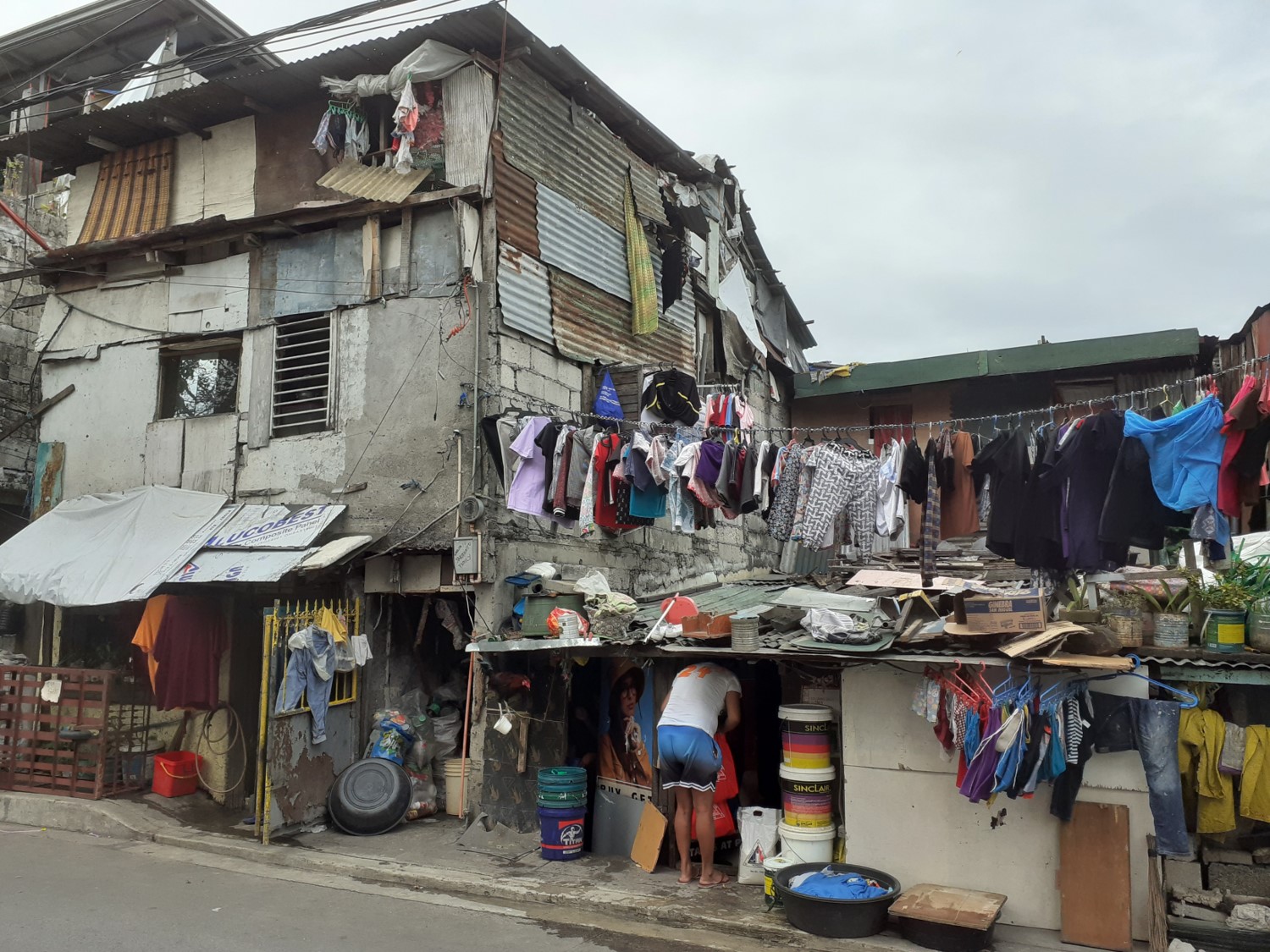
Language barrier
When the couple relocated in 2018, their eldest son was in the second year of kindergarten. “We looked for a school in the neighbourhood, which helped us to integrate,” they say.
However, state schools in the Philippines are very academic; there is less learning through play than in Switzerland. Overcrowded classrooms with 40 pupils finally led the couple to enrol Noel in a small private school.
Through contact with the children in the school and the neighbourhood, Noel and Micha quickly learnt English. At home, they speak Swiss German.
Barbara and Simon Stankowski are returning to Switzerland for the education of their two sons, Noel and Micha. We will accompany them on this adventure. With the help of the diary the family is keeping, we will share the main stages of their journey with readers and give advice on how to avoid pitfalls when entering children into the Swiss education system.
Von Gunten sees this as a definite advantage – she says knowledge of several languages and cultures is an asset. But she points out that “to make life easier for them, it’s very important that children who start school in Switzerland speak the language of the region in which their parents are going to live”. She strongly recommends that parents of children who do not speak any of the national languages prepare them sufficiently before their return.
Cantonal systems
The Stankowski family is expecting to settle in the German-speaking part of canton Bern. Barbara is a pastor and is currently in discussion with several parishes. This situation is causing some uncertainty. “Often, when you return to Switzerland, you know where you are going to put your luggage,” she says. “For us, it’s still a big unknown.” As soon as she gets a job, her husband will start looking for a job.
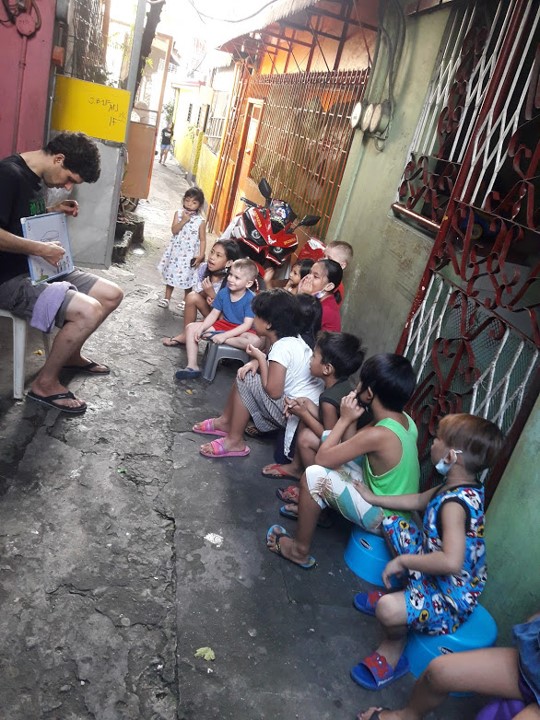
Still, knowing which canton you are moving to is a good start. Like many aspects of everyday life in Switzerland, compulsory schooling is a matter for the cantons. The cantons “draw up the curricula and timetables and determine the teaching materials”, according to the website of the Swiss Conference of Cantonal Ministers of Education.
Municipalities are responsible for running the schools. The website says “strong local roots facilitate the development of tailor-made solutions”.
But this also means there are as many different systems as there are cantons and municipalities. So in order to anticipate the start of the school year, it is essential to contact the municipality of residence or the cantonal education authority as early as possible.
When a family moves to a municipality, children are usually assigned to the nearest school corresponding to their educational level.
Extreme contrast
Noel and Micha Stankowski are lucky, because in 2021, during a family visit to Switzerland, they went to a Swiss state school for two months. “They loved it,” Simon says.
And for good reason: while in Switzerland schools were open and holding normal classes, in the Philippines they were completely closed. “In Manila, children were not even allowed to play in the street,” Barbara says. “When we came back, the contrast was extreme.”
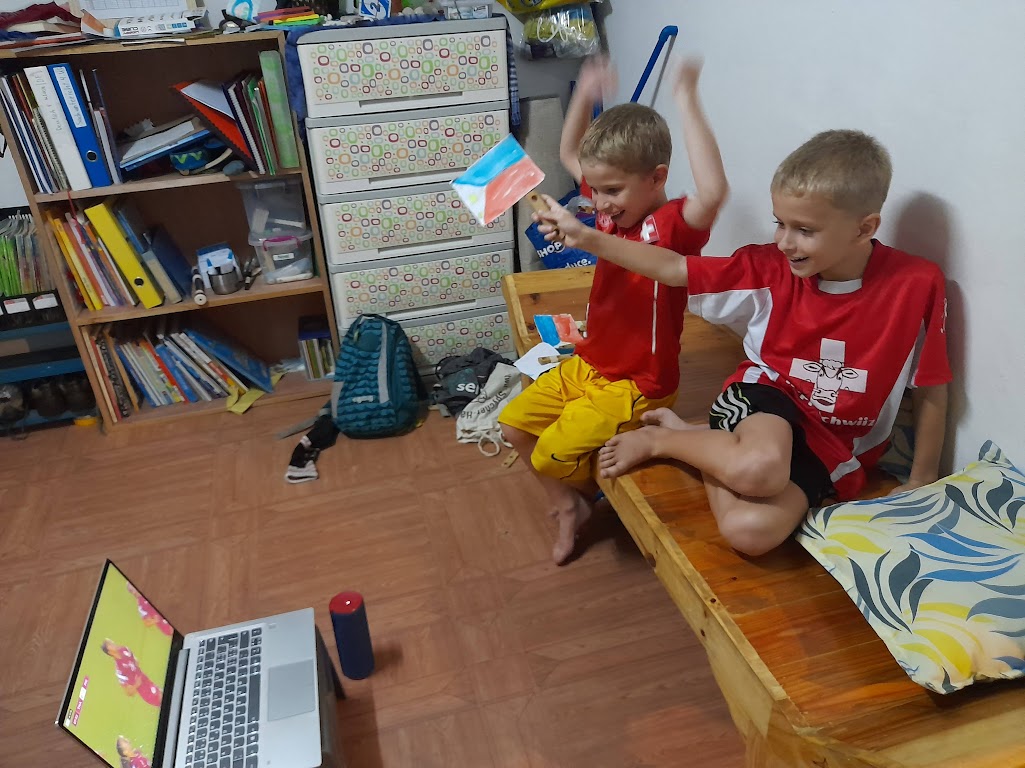
In the Philippines, children were considered a risk group throughout the pandemic – a health policy that had an extreme impact on people’s lives. After a trial of online classes failed, months passed with no chance of schools re-opening.
The Stankowskis decided to enrol their two sons in correspondence courses at the Deutsche Fernschule. “Our whole lives revolved around home schooling, because at that age you can’t leave the children to fend for themselves in front of a computer,” they say.
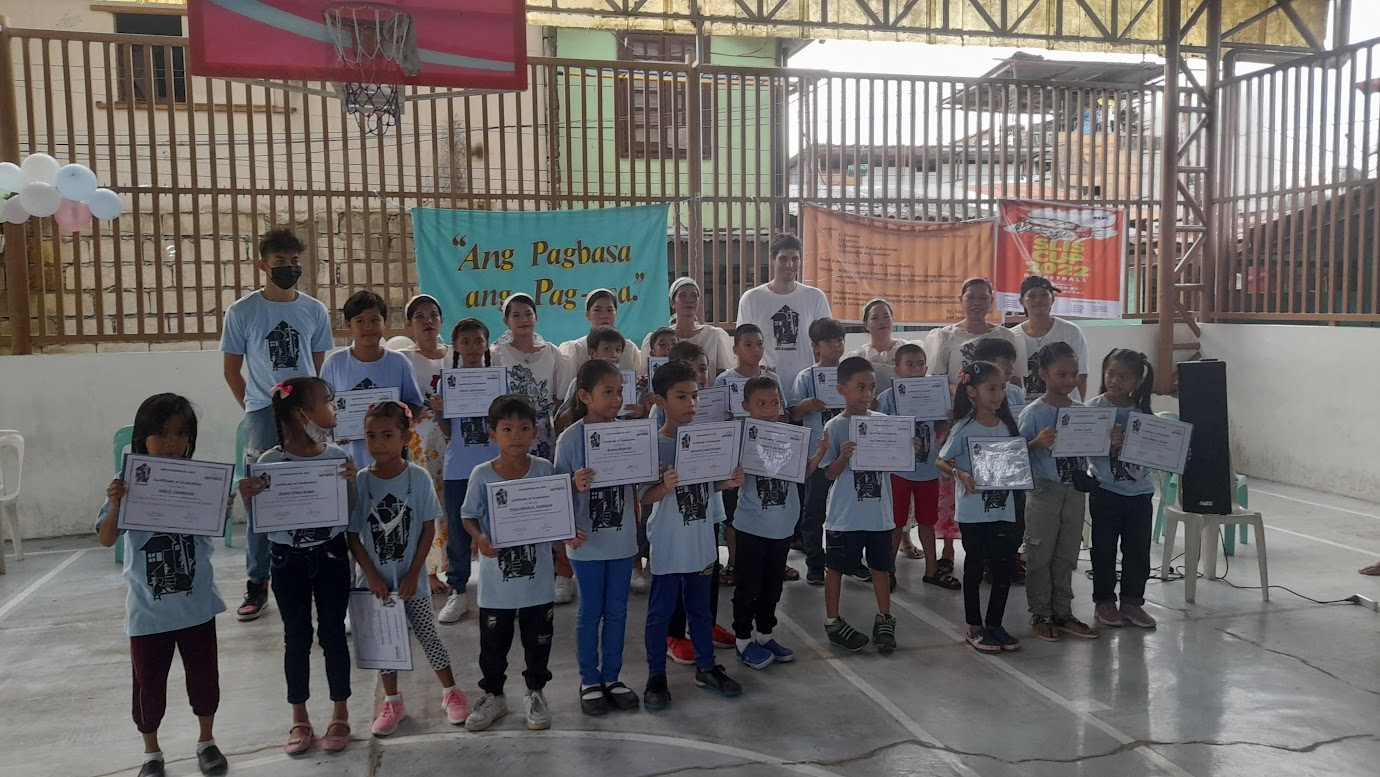
Mixed feelings
The final return is scheduled for mid-June. Now that the date has been set, the Stankowskis are torn between the excitement of returning home and the sadness of leaving behind friends and a certain lifestyle.
“From my point of view, I need to get back to a more structured daily life and for someone else to take responsibility for my children’s education,” says Simon Stankowski. Barbara, meanwhile, is looking forward to working as a pastor again and to having in-depth conversations in her mother tongue.
In the next episode of the Stankowskis’ adventures, we will follow the family as they prepare for their return.
Edited by Balz Rigendinger. Translated from French by Catherine Hickley.
More

In compliance with the JTI standards
More: SWI swissinfo.ch certified by the Journalism Trust Initiative




























You can find an overview of ongoing debates with our journalists here . Please join us!
If you want to start a conversation about a topic raised in this article or want to report factual errors, email us at english@swissinfo.ch.